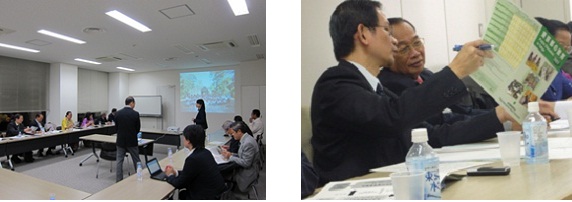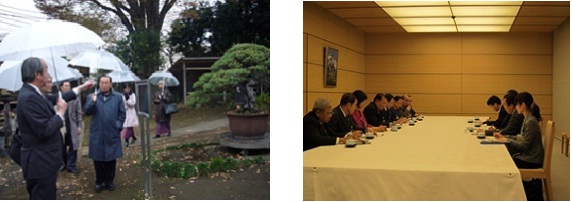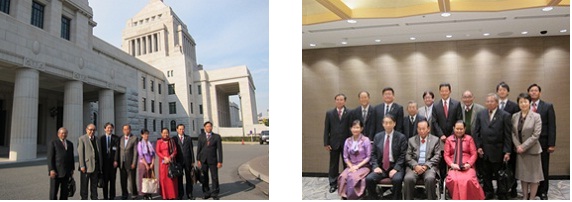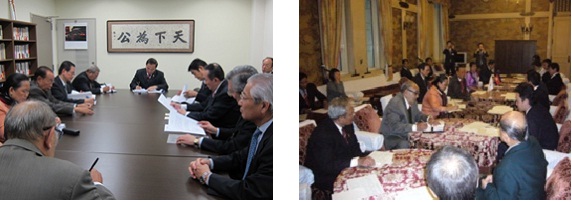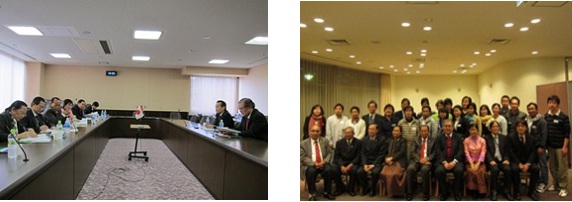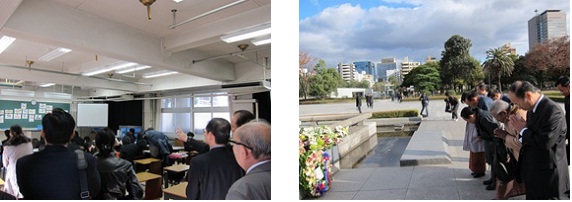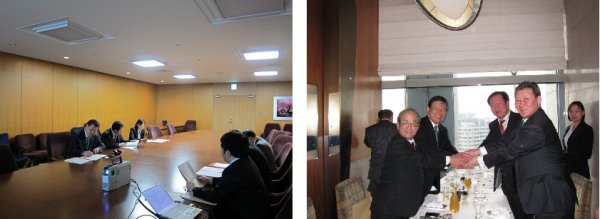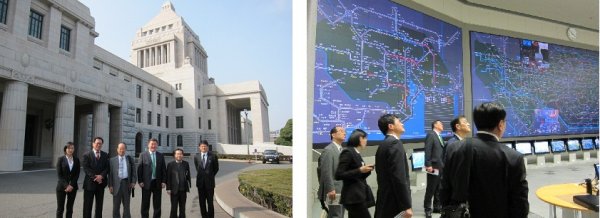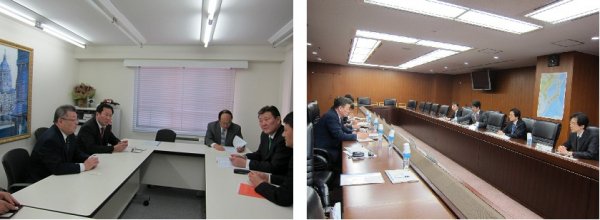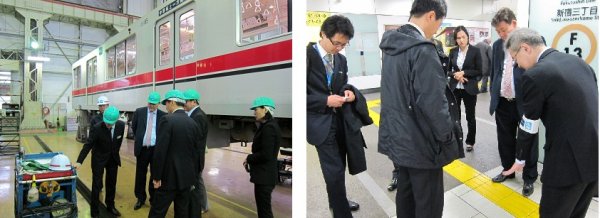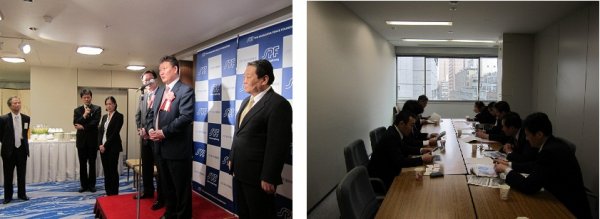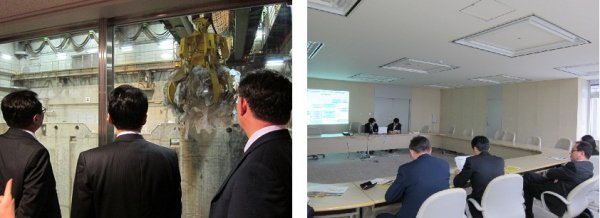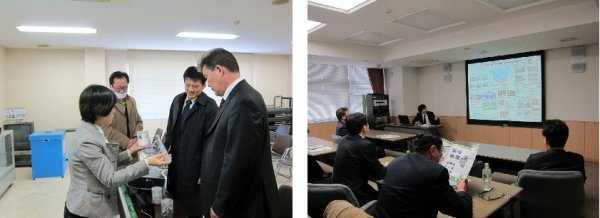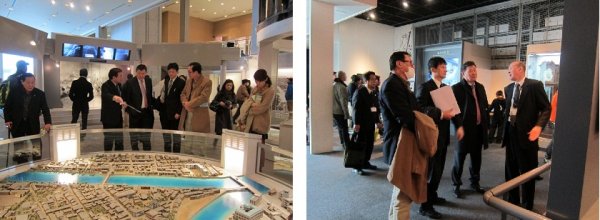Project Outline
In this project, SPF aims to strengthen ties and deepen mutual understanding between Japan and other Asian countries by inviting to Japan young parliamentarians who would otherwise have little chance of visiting the country. While in Japan, the group of parliamentarians will exchange opinions with Japanese members of parliament, politicians, and persons in the business and financial world, and participate in lectures on a theme chosen in consultation with the group members.
Implementation plan
In the third year of the five-year project, the following activities will be carried out.
- Invitation of Cambodian parliamentarians to Japan (approximately 8 days):
Seven parliamentarians (including one member of the secretariat), and one coordinator/interpreter, will be invited to Japan to take part in the activities in (1) below.
- (1) The group will exchange opinions with Japanese members of parliament, politicians, and persons in the business and financial world and take part in a lecture and short-term training course on "education", a theme selected at the request of the National Assembly of Cambodia.
(2) Selection of parliamentarians, pre-visit briefing, and follow-up activities will be outsourced to the Cambodia International Education Support Foundation (CIESF).
- 2. Invitation of Mongolian parliamentarians to Japan (approximately 8 days):
Six parliamentarians (including one member of the secretariat), and coordinator, will be invited to Japan to take part in the activities in (1) below.
- (1) The group will exchange opinions with Japanese members of parliament, politicians, and persons in the business and financial world, and take part in a lecture and short-term training course on a theme appropriate to Mongolia's current situation.
(2) Selection of parliamentarians, pre-visit briefing, and follow-up activities will be outsourced to the Mongolian Development Research Center (MDRC).
- Preparation, coordination, and activities in Japan
- (1) SPF program officers will visit Cambodia and Mongolia to discuss the timing, content and themes of the invitation program with the partner organizations and finalize the relevant contracts. Follow-up activities will be carried out in Cambodia and Mongolia after the Japan visit.
- (2) SPF will liaise between the partner institutions and institutions taking in the visiting parties to ensure the project runs smoothly. In addition, a welcome reception and other events will be held during the visit to promote network building between stakeholders.
Project Content
Cambodian parliamentary delegation visits Japan (Dec 4-11, 2011 [8 days])
Following the cessation of the civil war, Cambodia held general elections through the offices of the United Nations Transitional Authority and set off to a new start in 1993 under the title of the 'Kingdom of Cambodia'. At points during the civil war, diplomatic relations between Japan and Cambodia broke down, and to this day there is insufficient understanding between the two countries in a number of fields. Accordingly, the objective of this visit of Cambodian parliamentarians is to strengthen relations between the two countries and promote understanding of Japan. With the war now at an end and political stability achieved, Cambodia is beginning to develop economically, and is calling for further development by attracting direct foreign investment. Cambodia needs to secure top-class human resources if it is to achieve its development goals, hence the current program for the visiting parliamentarians was built with a focus on education.
During their eight-day visit, the group paid calls on the Ministry of Education, Culture, Sports, Science and Technology, National Institute for Education Policy Research (MEXT), Tokyo Metropolitan Board of Education, Hiroshima University, and Tokyo Metropolitan Horticultural High School, and exchanged views with members of the Lower House Committee on Education, Culture, Sports, Science and Technology. The group, which was composed of members of the Cambodian 7th Committee on Education, was very eager to acquire knowledge on the workings of the Japanese education system, and asked many questions of the hosts and took extensive notes. On the day prior to the group's return to Cambodia, the information gathered during the visit was compiled into a report for Han Seng, chairman of the National Assembly of Cambodia.
List of Cambodian parliamentarians (PDF)
Lecture on preservation of the historic ruins at Angkor and HR education program (Sophia University) [Left]
The group learn about education administration in Tokyo (Tokyo Education Board) [Right]
After listening to a presentation on the curriculum at industry-linked schools, the group visit some facilities (Tokyo Metropolitan Horticultural High School) [Left]
Courtesy call on Deputy Secretary of the Cabinet Secretariat Takeshi Saito (Democratic Party of Japan (DPJ)/Chairman of the DPJ Japan-Cambodia Parliamentary Friendship League) [Right]
Visit to the National Diet (lower house) [Left]
Working lunch with members of the DPJ Japan-Cambodia Parliamentary Friendship League [Right]
Courtesy call on Takeo Hiranuma, Chairman of the Japan-Cambodia Parliamentary Friendship League[Left]
Views are exchanged on the legislative process and issues in education in both countries (members of the Lower House Committee on Education, Culture, Sports, Science and Technology [Right])
The group hears a presentation on the faculty of education (Hiroshima University) [Left]
Social gathering with Cambodian exchange students [Right]
Inspection of lessons (junior high/high schools affiliated to Hiroshima University) [Left]
The group place a flower offering at the memorial stone in Hiroshima Peace Memorial Museum [Right]
Mongolian parliamentary delegation visits Japan (March 5-12: 8 days)
Since Mongolia began its transition to a democratic system and market economy in 1990, Japan has had the position of the country's largest aid donor, and bilateral relations between the two countries have progressed steadily across a number of fields. However, rapid economic growth in Mongolia has brought with it problems such as air pollution and traffic congestion, and means for sustainable economic growth that take into account protection of the environment are much in need. In light of this situation, SPAF developed a program entitled " Sustainable Urban Development ", for a delegation of members of the Mongolian parliament in Japan.
As well as visiting the Ministry of Land, Infrastructure, Transport and Tourism, the Agency for Natural Resources and Energy, Traffic Control Center, Tokyo Metropolitan Police Department, Environmental Bureau of the Tokyo Metropolitan Government, Tokyo Metro, and Kitakyushu Smart Grid Committee, the delegation exchanged views with members of both houses of the Diet and the Japan-Mongolia Parliamentary Friendship League. The group also visited Miyajima, Hiroshima Peace Memorial Park, and the Disaster Reduction and Human Renovation Institution to deepen their knowledge of Japanese history and culture, and took in the official March sumo event.
Lecture on the history of pollution in Japan and anti-pollution measures (Ministry of the Environment)[Left]
Meeting of the Japanese Diet and Japan-Mongolia Parliamentary Friendship League.[Right]
Visit to the National Diet[Left]
Studying the traffic control system (Tokyo Metropolitan Police Department, Traffic Control Center)[Right]
Courtesy call on President Kosei Ueno (Research Institute of Urban Renaissance)[Left]
Lecture on Japanese urban planning (general, housing, road and rail) (Ministry of Land, Infrastructure and Transport)[Right]
An overview of the Tokyo Metro (Tokyo Metro Nakano Depot)[Left]
Inspection of Shinjuku San-chome station and test ride of the subway[Right}
Reception hosted by the Sasakawa Peace Foundation[Left]
Lecture on the energy situation in Japan and smart grids (Agency for Natural Resources and Energy)[Right]
Inspection of the general waste disposal process (Shibuya incineration plant)[Left]
Studying waste disposal policy (Environmental Bureau of the Tokyo Metropolitan Government)[Right]
Fluorescent lamp recycling factory inspection (Kitakyushu Eco-Town)[Left]
Lecture on Kitakyushu Smart Community Creation Project (Kitakyushu Higashida Smart Community)[Right]
Visit to the Hiroshima Peace Memorial Museum[Left]
Lecture on the Great Hanshin-Awaji Earthquake Disaster and disaster prevention measures at the Disaster Reduction and Human Renovation Institution[Right]
Project Results
| Implementing Agency |
The Sasakawa Peace Foundation
Secretariat of National Assembly of Cambodia (Cambodia), Mongolian Development Research Center (Mongol)
|
Year |
Implementation year(3/5) |
| Project Type |
Self OperatedGrantCommissionedOther |
Year project budget implementation |
11,697,612yen |

